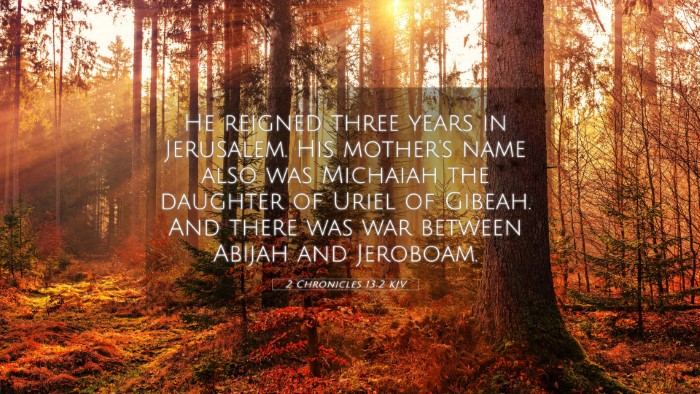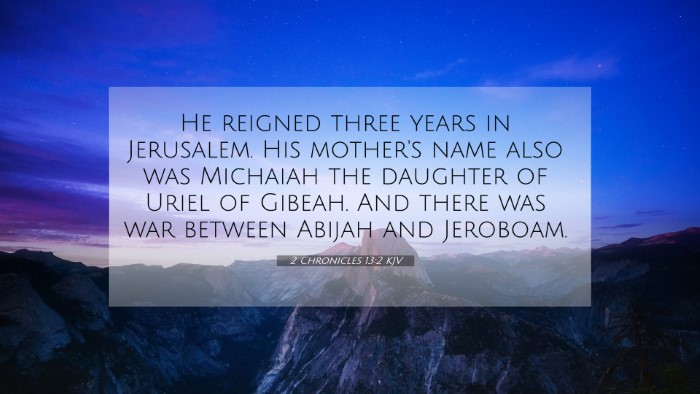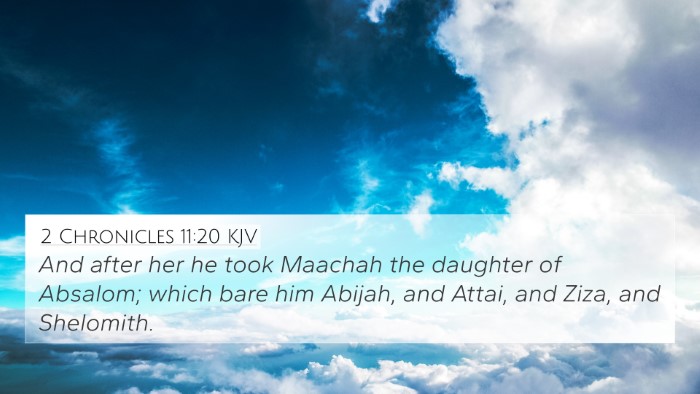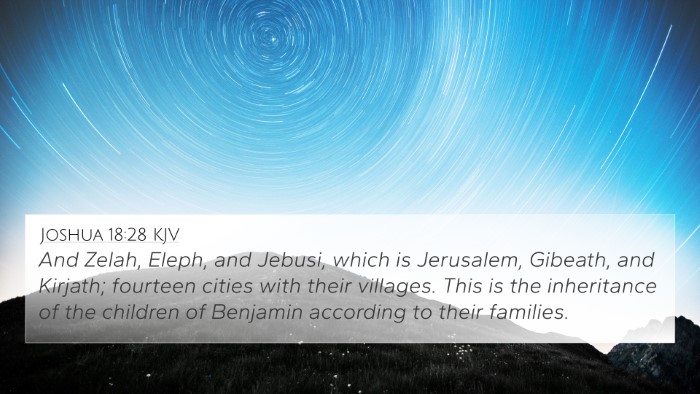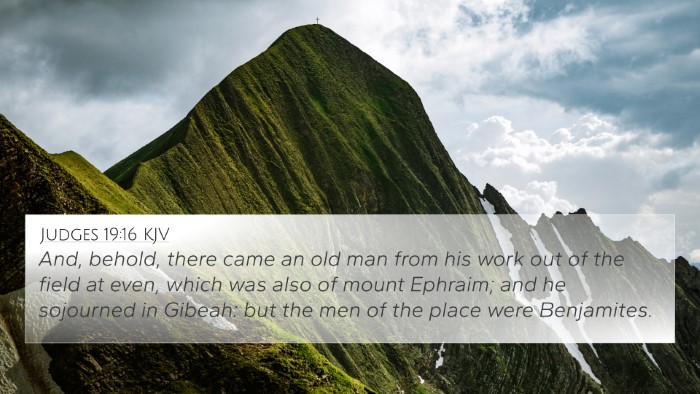Understanding 2 Chronicles 13:2
Bible Verse: 2 Chronicles 13:2 - "He reigned three years in Jerusalem. His mother’s name was Micaiah the daughter of Uriel of Gibeah. And there was war between Abijah and Jeroboam."
Overview: This verse introduces Abijah, King of Judah, and marks a significant point in the ongoing conflict between the Kingdom of Judah and the Kingdom of Israel. The historical and theological implications of this verse provide a deep insight into the reign of Abijah and the conflicts stemming from the division of the two kingdoms after Solomon's reign.
Insights from Public Domain Commentaries
Matthew Henry's Commentary
Matthew Henry highlights Abijah’s immediate lineage, emphasizing that his mother’s background, Micaiah, connects him to significant biblical figures. This setting gives context to Abijah's role and challenges during his reign. Henry notes the importance of knowing a king's lineage, as it often reflects their leadership style and the influences that shaped their reign. The mention of war between Abijah and Jeroboam signifies ongoing struggles stemming from the divided kingdom. Henry points out that this conflict had both political and spiritual implications, as these wars were often seen as battles between faithfulness to God and rebellion against His purposes.
Albert Barnes' Notes
Albert Barnes elaborates on the historical context of the war between Abijah and Jeroboam, indicating the significance of Abijah's short but impactful reign. He notes that Abijah's military conflicts can be viewed as a continuation of the struggle for legitimacy against Jeroboam, who had led a faction away from Davidic kingship. Barnes emphasizes that during this period, maintaining loyalty to the Davidic covenant was paramount, making Abijah's role critical in the history of Israel. His interpretation suggests that these wars depicted more than mere territorial disputes; they represented the ongoing struggle between true worship and idolatry that marked the era.
Adam Clarke's Commentary
Adam Clarke offers a detailed exegesis regarding the names and places mentioned in the text. He explains the etymology of Micaiah’s name and considers the significance of her family lineage. Clarke delves into the contrast between Abijah and Jeroboam, highlighting Abijah’s reliance on the covenant with God during wars, suggesting a thematic significance that connects divine favor with leadership. Clarke further notes that understanding such conflicts requires examining the underlying covenantal themes presented throughout the Old and New Testaments, thus linking these insights to broader biblical narratives.
Bible Verse Cross-References
- 1 Kings 14:31: Discusses the reign of Abijah's father, highlighting the lineage and its significance.
- 2 Chronicles 11:3-4: Provides insight into the historical context of Jeroboam's rise and Israel's division.
- 1 Kings 15:1-8: Chronicles the reign of Abijah's son Asa, demonstrating continuity in Judah's leadership.
- 2 Chronicles 13:3: Details the military stance Abijah took against Jeroboam, allowing for a deeper understanding of the nature of the conflict.
- 1 Chronicles 3:10: Lists Judah’s kings and reinforces Abijah’s role within the royal lineage.
- 2 Chronicles 14:1-2: Illustrates Asa's reforms, emphasizing the religious context that influenced Abijah’s decisions.
- Jeremiah 22:1: Offers a broader context of leadership linked to the Davidic covenant and God's intentions for Israel.
Thematic Connections and Inter-Biblical Dialogue
The events surrounding 2 Chronicles 13:2 create thematic connections between the narrative of divided kingdoms and God's enduring covenant. Not only does this verse signify a historical account, but it also initiates a dialogue on leadership, divine favor, and the critical nature of faithfulness amidst conflict. Abijah's struggles denote the very essence of Israel's spiritual battles that resonate throughout the scriptures, highlighting the importance of maintaining fidelity to God's covenant despite external and internal pressures.
Tools for Bible Cross-Referencing
Using various tools for Bible cross-referencing can enhance the understanding of passages such as 2 Chronicles 13:2. Here are some valuable resources:
- Bible Concordance: A guide that allows individuals to find verses related to specific keywords.
- Bible Cross-Reference Guide: Useful for connecting verses across different books of the Bible.
- Cross-Reference Bible Study: A methodical way to analyze scriptures and their interconnections.
- Bible Reference Resources: Online tools or books that assist in locating similar themes and passages.
- Comprehensive Bible Cross-Reference Materials: Books containing extensive cross-referencing to aid in deeper study.
Conclusion
In conclusion, 2 Chronicles 13:2 is not just a historical account but a significant verse that opens the door to exploring the complexities of leadership, divine assurance, and the implications of covenant faithfulness. By using the insights drawn from various commentaries and applying cross-referencing methods, readers can gain a deeper understanding of the biblical text and its relevance to both ancient and contemporary faith.

